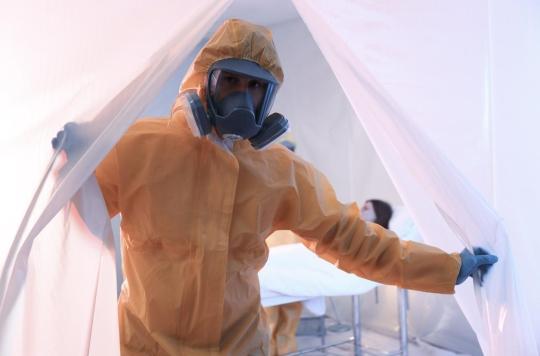A soldier, returning from abroad, was infected with the virus that causes Lassa fever, a disease endemic in several West African countries.

- A first case of Lassa fever has been detected in France.
- This pathology is a viral hemorrhagic fever, endemic in several West African countries.
- Lassa fever is transmissible between humans through direct contact with the patient’s blood, urine or feces.
A first case of Lassa fever, a viral hemorrhagic fever, has been identified in France, announced the Ministry of Health and Solidarity. Hospitalized in Île-de-France, the patient is a soldier returned from abroad. “His state of health does not cause concern. A thorough epidemiological investigation is underway to determine the people who may have been in risky contact with the patient”can we read in a statement published on May 2.
Lassa fever: a mostly asymptomatic pathology
Endemic in some West African countries, the Lassa virus infects around 100,000 to 300,000 people per year, according to the Pasteur Institute. This pathology is generally asymptomatic, but it can appear with classic clinical signs such as fever, vomiting, nausea, abdominal pain or even headache. However, these symptoms can worsen with the occurrence of edema, hemorrhagic signs, pericardial and pleural effusions. “The patient dies in a context of hypotensive and hypovolemic shock and renal and hepatic failure (…) Lassa fever is extremely serious for pregnant women, frequently leading to the death of the mother and systematically to that of the fetus.explained the foundation.

The virus is transmissible by direct contact with the patient’s fluids
Caused by a Arenavirus, Lassa fever can be transmitted from human to human through direct contact with the blood, urine, excrement and all other organic secretions of the infected person. “The risk of secondary cases occurring is therefore limited to people who have had direct contact with the patient’s biological fluids, in particular the healthcare personnel who took care of them”noted the Ministry of Health and Solidarity.
Only one molecule, ribavirin, can be used against the Lassa virus. However, its effectiveness “remains relatively poorly demonstrated”, and it must be administered very soon after infection. Problem: this pathology is mainly asymptomatic, and the clinical signs at the start of the disease are close to those of malaria or dysentery. It is therefore often administered too late to be effective. To address this problem, new vaccines are currently being studied.















